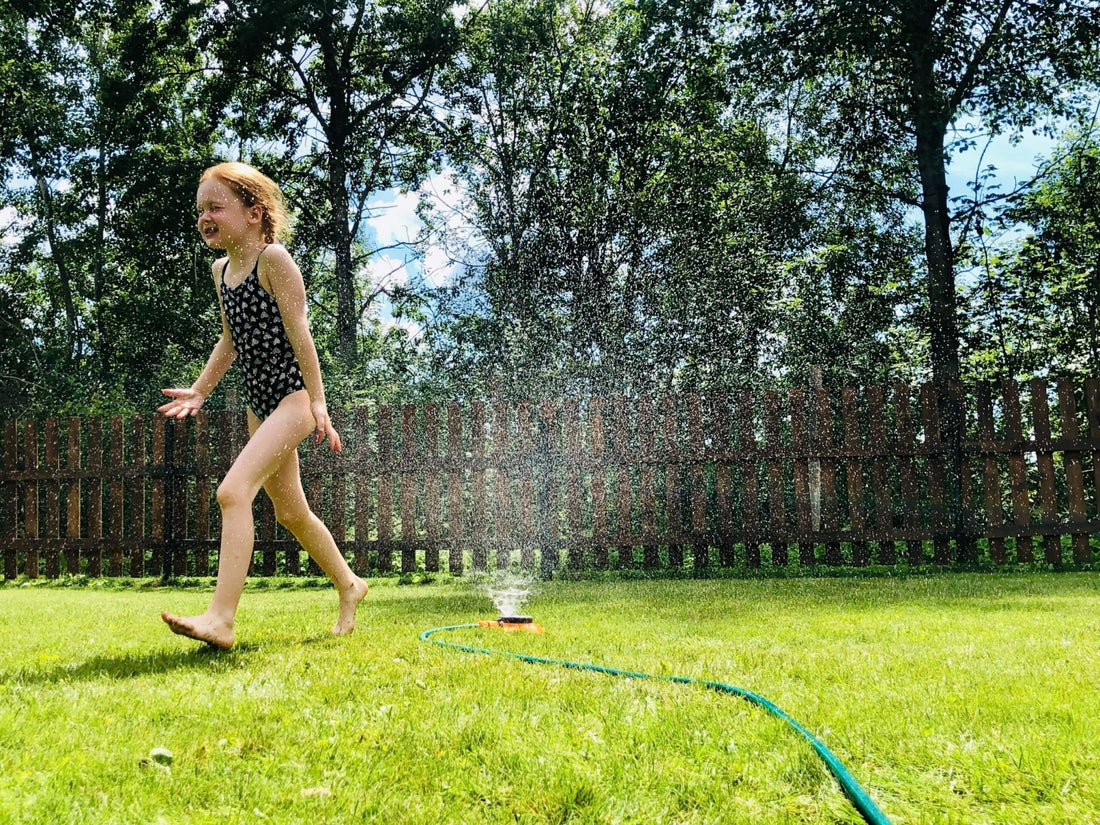
Smart Irrigation 101: Understanding the Components of a Smart Irrigation System
Share
Smart irrigation systems, also known as automated irrigation systems or smart sprinkler systems, are at the forefront of water conservation efforts in landscape irrigation. In this article, we will delve into the components of smart irrigation systems, explore the benefits they offer, and discuss their applications in various settings.
What is a Smart Irrigation System?
Smart irrigation systems utilize sensors, controllers, and weather data to accurately determine and deliver the precise amount of water needed by plants at the appropriate time. This eliminates guesswork and manual adjustments associated with traditional irrigation methods.
Key Components of a Smart Irrigation System

A smart irrigation system comprises several essential components that work together seamlessly.
Water Sources
Smart irrigation systems can utilize municipal water, wells, or rainwater harvesting to provide irrigation water. Typically, municipal water serves as the primary source of irrigation water. Additionally, rainwater harvesting systems collect and store rainwater, which can be used during dry periods or as a supplemental water source.
Water Meter
A water meter accurately tracks water usage, helping users identify inefficiencies and optimize water usage.
Backflow Device
The inclusion of a backflow device prevents water supply contamination, prioritizing water safety.
Sensors
Sensors play a critical role in smart irrigation systems, providing real-time data to inform irrigation decisions.- Rain/Freeze Sensors: pause irrigation during inclement weather.
- Soil Moisture Sensors: measure the moisture levels in the soil, and determine irrigation needs.
- Flow Sensors: detect leaks or malfunctions.
Rotors/Sprays
Different types of rotors and sprays efficiently distribute water, reducing overspray and ensuring targeted water application.
Controller
The controller serves as the brain of the smart irrigation system. It manages the system, allowing users to set schedules, adjust irrigation, and access remote control features.
Valves and Sprinklers

Valves regulate water flow, while sprinklers deliver water to specific areas, ensuring optimal water distribution.
Weather Data Integration
Real-time weather data is integrated to optimize watering schedules based on current and future conditions.
What Makes an Irrigation System "Smart"?

Smart irrigation systems have distinct features that set them apart from traditional irrigation methods, making them ideal for efficient water management.
Automation
Smart irrigation systems determine the optimal watering schedule based on real-time data, eliminating the need for manual timers or guesswork.
Precise Watering
These systems deliver precise amounts of water by utilizing sensors like soil moisture sensors. By accurately measuring moisture levels in the soil, they determine the exact irrigation needs of the landscape.
Water-Saving Capabilities
Smart irrigation systems optimize water usage through various water-saving features. Sensors, such as rain and freeze sensors, adjust or pause irrigation during unfavorable weather conditions, preventing unnecessary watering. Flow sensors detect leaks or malfunctions, minimizing water waste and avoiding costly losses.
Customization and Flexibility
These systems offer customization and flexibility to suit different landscapes. By dividing the landscape into zones and adjusting watering schedules accordingly, they cater to specific plant types, sun exposure, and soil conditions. This ensures that each area receives the appropriate amount of water, promoting healthy plant growth and minimizing waste.
Remote Access and Control
Advanced controllers with wireless connectivity and smartphone integration allow users to remotely monitor and manage the system. This enables adjustments, water usage checks, and performance alerts from anywhere, providing convenience and peace of mind.
Applications of Smart Irrigation Systems
Smart irrigation systems have a wide range of applications across different sectors, offering numerous benefits in terms of water conservation, efficiency, and landscape management.
Residential Landscapes

In residential settings, smart irrigation systems offer homeowners a range of advantages. Firstly, these systems provide convenience by automating the irrigation process, freeing homeowners from the hassle of manual watering or adjusting timers.
In addition, smart systems ensure that plants receive the right amount of water, promoting healthier growth and reducing the risk of overwatering or underwatering. They also contribute to water conservation through features like rain and freeze sensors.
Agriculture
In the realm of agriculture, smart irrigation systems play a crucial role in improving crop yields and optimizing water usage. Farmers can implement precise irrigation strategies tailored to different crops, utilizing real-time data from soil moisture sensors and advanced controllers. This precision prevents overwatering, reduces water usage, and enhances resource efficiency, ultimately leading to increased crop productivity.
Parks and Public Spaces
Smart irrigation systems ensure efficient water management, allowing for the preservation of green spaces while conserving water resources.
One of the key benefits of smart irrigation systems in parks and public spaces is their ability to deliver precise watering techniques. These systems minimize water runoff and overspray, effectively preventing water waste. This level of precision ensures that water is applied directly to the targeted areas, promoting healthy plant growth while minimizing the impact on surrounding surfaces.
It also helps to maintain the integrity of pathways, seating areas, and other non-vegetated spaces within the park. This, in turn, enhances the overall quality of the park or public space, providing communities with well-maintained areas that enhance their quality of life.
Commercial Landscaping
Businesses benefit from cost savings and enhanced environmental sustainability by employing smart irrigation systems. Well-maintained landscapes created by smart irrigation systems enhance brand image, customer impressions, and create a welcoming environment for employees and visitors.
Greenhouses and Nurseries
Smart irrigation systems also find valuable applications in controlled environments like greenhouses and nurseries. By monitoring real-time data, such as soil moisture levels and plant needs, these systems prevent water stress and nutrient imbalances, resulting in healthier plants and improved crop yields.
Sports Fields

Smart irrigation systems are vital for maintaining sports fields. They not only maximize water efficiency but also help maintain the quality and condition of the sports field, providing an ideal playing surface for athletes and enhancing the overall sports experience.